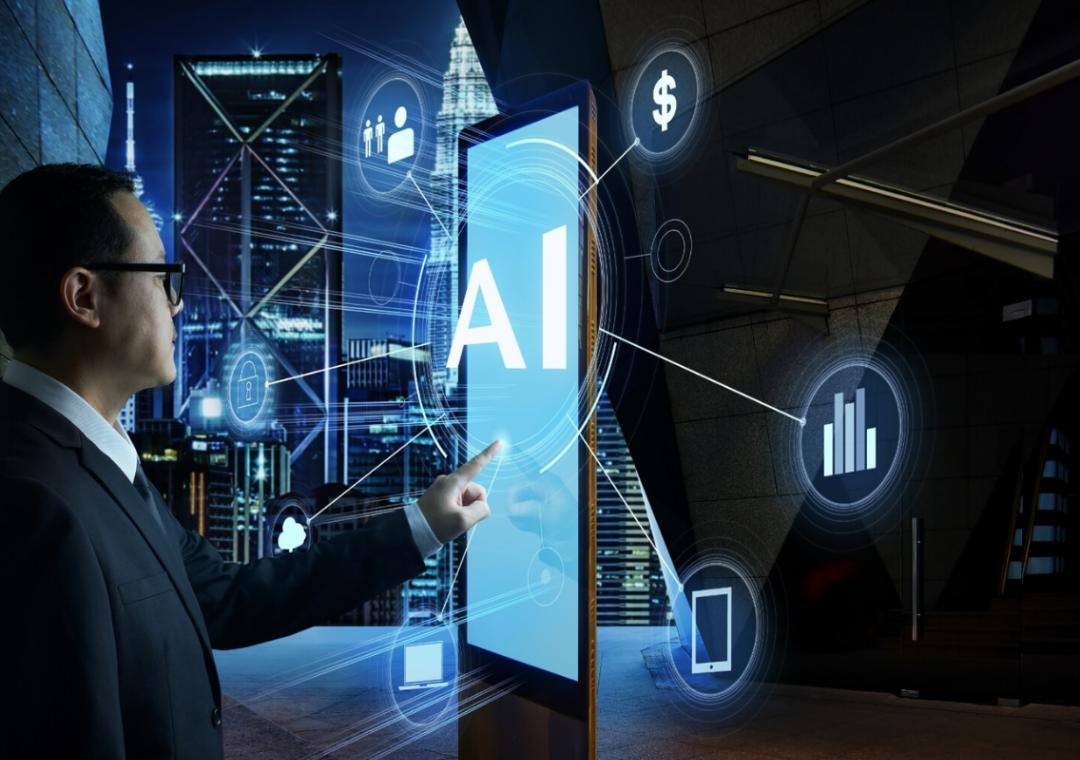
AI & ML now power over 77% of business processes
In today’s digital-first world, staying ahead of the competition requires embracing cutting-edge technologies that drive innovation and efficiency. Two such technologies that have revolutionized the way businesses operate are Artificial Intelligence (AI) and Machine Learning (ML). Gone are the days when AI/ML were considered futuristic concepts; they are now operational essentials that are transforming the way enterprises function. According to a recent report, over 77% of businesses are leveraging AI/ML to improve productivity, reduce costs, and personalize user experiences.
In this blog post, we’ll delve into the world of AI/ML, exploring their significance, applications, and the benefits they bring to businesses. We’ll also examine the reasons behind the rapid adoption of AI/ML and what the future holds for these technologies.
What is AI & ML?
Before we dive into the benefits and applications of AI/ML, let’s define what they are.
Artificial Intelligence (AI) refers to the development of computer systems that can perform tasks that typically require human intelligence, such as understanding language, recognizing patterns, and making decisions. AI systems can learn, reason, and adapt to new situations, making them increasingly powerful tools for businesses.
Machine Learning (ML) is a subset of AI that involves training algorithms to analyze data and make predictions or decisions without being explicitly programmed. ML algorithms can learn from large datasets and improve their performance over time, making them ideal for complex tasks such as image recognition, natural language processing, and predictive analytics.
How important is AI & ML in business?
The importance of AI/ML in business cannot be overstated. By automating repetitive tasks, AI/ML can help businesses reduce costs, improve productivity, and enhance customer experiences. Here are some ways AI/ML are being used in businesses:
- Automating customer support: AI-powered chatbots can handle customer inquiries, freeing up human customer support agents to focus on complex issues.
- Real-time fraud detection: ML algorithms can analyze transaction data in real-time, detecting fraudulent activities and preventing financial losses.
- Predictive analytics: AI-powered predictive analytics can help businesses forecast sales, identify trends, and optimize resource allocation.
- Personalization: ML algorithms can analyze customer data to create personalized product recommendations, improving customer engagement and loyalty.
- Automation of routine tasks: AI/ML can automate tasks such as data entry, bookkeeping, and inventory management, freeing up employees to focus on higher-value tasks.
Why are businesses adopting AI & ML?
The rapid adoption of AI/ML in businesses can be attributed to several factors:
- Increased competition: In today’s competitive landscape, businesses need to stay ahead of the curve to remain competitive. AI/ML provide a competitive edge by enabling businesses to respond quickly to changing market conditions.
- Improved customer experiences: AI/ML can help businesses personalize customer experiences, leading to increased customer satisfaction and loyalty.
- Cost savings: AI/ML can automate routine tasks, reducing labor costs and improving operational efficiency.
- Data-driven decision-making: AI/ML can analyze large datasets, providing businesses with valuable insights that inform data-driven decision-making.
What does the future hold for AI & ML?
As AI/ML continue to evolve, we can expect to see even more innovative applications in businesses. Some of the trends that will shape the future of AI/ML include:
- Edge AI: With the increasing use of IoT devices, edge AI will become more prevalent, enabling devices to process data locally and reducing the need for cloud-based processing.
- Explainable AI: As AI becomes more pervasive, there will be a growing need for explainable AI, which provides transparency and accountability for AI-driven decision-making.
- Human-AI collaboration: AI/ML will become more integrated with human workflows, enabling businesses to leverage the strengths of both humans and machines.
- AI-powered robotics: AI-powered robots will become more common, enabling businesses to automate complex tasks and improve operational efficiency.
Conclusion
AI and Machine Learning are no longer futuristic concepts; they are operational essentials that are transforming the way businesses operate. By automating routine tasks, improving customer experiences, and providing data-driven insights, AI/ML are helping businesses stay competitive in a digital-first world. As AI/ML continue to evolve, we can expect to see even more innovative applications that drive growth, efficiency, and innovation. Whether you’re a startup or a large enterprise, embracing AI/ML is no longer optional; it’s fundamental to staying ahead of the competition.
Source
https://www.growthjockey.com/blogs/what-is-ai-and-ml-how-is-it-important






